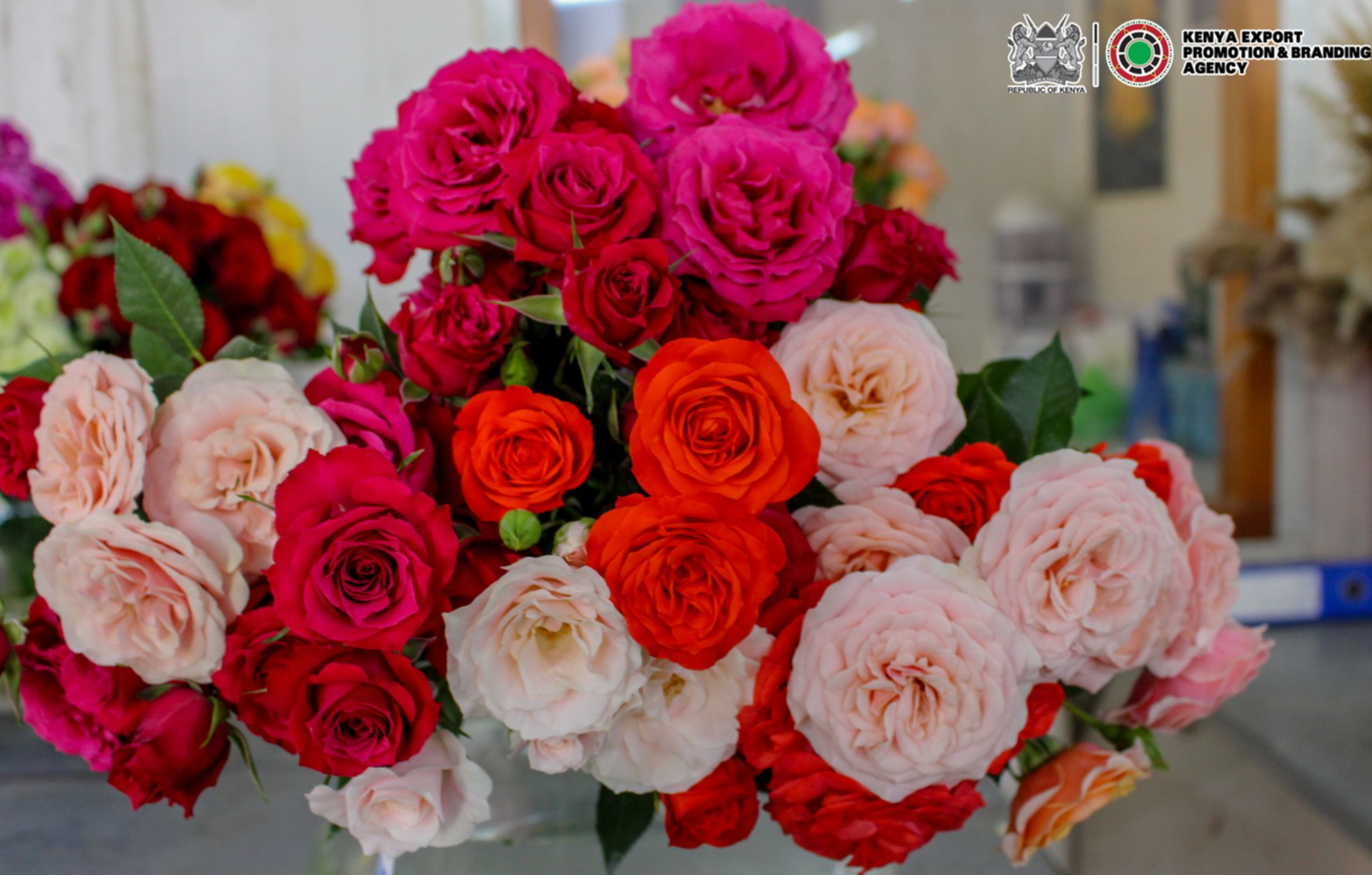
Floriculture Sector in Kenya
Horticulture describes a combination of fruits, vegetables, flowers, and other cultivated plants, while floriculture is a branch of horticulture that focuses on the cultivation and propagation of flowering and ornamental plants for gardens, greenhouses, nurseries, and landscapes, forming the floral industry. Kenya is a major producer of flowers for both local and international markets.
Kenya’s flowers are primarily grown in regions such as Lake Naivasha, Mt. Kenya, Nairobi, Thika, Kiambu, Athi River, Kitale, Nakuru, Kericho, Nyandarua, Trans Nzoia, Uasin Gishu, and Eastern Kenya. The main cut flowers produced include roses, carnations, alstroemeria, gypsophila, lilies, eryngiums, arabicum, hypericum, statice, agapanthus, moluccella, mobydick, chrysanthemums, heliconia, strelitzia, anthurium, ferns, and various summer flowers.
Kenya is the leading producer and exporter of roses due to an efficient value chain that integrates large flower breeders and growers, supported by advanced infrastructure and a strong supply chain. Leading breeders provide high-quality rose varieties cultivated by prominent farms, leveraging Kenya’s favorable growing conditions. The sector benefits from efficient post-harvest handling, reliable shipping logistics, and regulatory oversight, ensuring high-quality products and timely delivery to global markets. Roses are mainly exported through auction systems in the Netherlands and direct trade with major retailers.
Kenya plays a key role in the global flower market, especially during Valentine's Day. It is the fourth-largest exporter of cut flowers worldwide, following the Netherlands, Colombia, and Ecuador. In 2023, Kenya accounted for approximately 6.3% of the global market share for cut flowers and flower buds. The country’s floriculture sector continues to grow, showing great potential for expansion. Total exports were valued at USD 667.534 million in 2023, marking a 6.2% increase compared to 2022. Kenya’s key export markets for cut flowers and buds in 2023 included the Netherlands, the United Kingdom, Saudi Arabia, Kazakhstan, and Germany.
The floriculture industry in Kenya continues to attract investors due to its strong infrastructure, favorable climate, strategic global position, and productive workforce. The industry consists of large, medium, and small-scale producers who have achieved high management standards and invested significantly in value addition through modern production technologies, precision farming, and advanced marketing strategies. Farmers utilize modern techniques, including drip irrigation, fertigation systems, greenhouse ventilation systems, net shading, fertilizer recycling systems to reduce waste, wastewater treatment using wetlands, artificial lighting to extend daylight for long-day crops, and post-harvest handling facilities such as grading and packaging sheds, pre-cooling and cold storage facilities, and refrigerated transport to ports of exit.
Regulatory agencies overseeing the industry include the Horticultural Crops Directorate (HCD), the Kenya Plant Health Inspectorate Service (KEPHIS), the Kenya Bureau of Standards (KEBS), and the Pest Control Products Board (PCPB). These institutions play a crucial role in the growth and expansion of the sector.
Industry trade associations such as the Kenya Flower Council (KFC), the Fresh Produce Exporters Association of Kenya (FPEAK), and the Fresh Produce Consortium of Kenya support companies in technical and marketing aspects. These associations also lobby for industry interests and assist in disseminating technical information to farmers, including standard specifications and compliance enforcement. The Kenya Export Promotion and Branding Agency (KEPROBA) promotes the export of Kenyan flowers worldwide through international trade fairs, market linkages, digital and on-ground activations, and integrated marketing communication campaigns.
Kenya hosts the International Flower Trade Expo (IFTEX) annually, providing a platform for growers, buyers, and industry stakeholders to network, showcase innovations, and explore new business opportunities.
The flower sector in Kenya plays a significant role in promoting gender equality and women's empowerment. Women make up at least 50% of the workforce in the floriculture sector, contributing significantly to flower harvesting, sorting, and bouquet making. These roles provide financial independence and opportunities for skill development, fostering broader social change and advancing gender equality, particularly in rural areas. The industry also positively impacts local communities, especially around production hubs such as Lake Naivasha, where many farms invest in education, healthcare, and other essential services to improve the quality of life for workers and their families.
